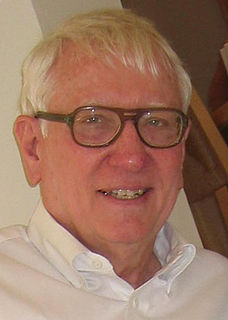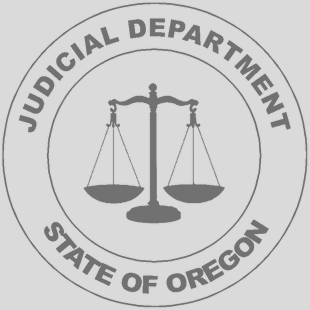
The United States Court of Appeals for the Armed Forces is an Article I court that exercises worldwide appellate jurisdiction over members of the United States Armed Forces on active duty and other persons subject to the Uniform Code of Military Justice. The court is composed of five civilian judges appointed for 15-year terms by the President of the United States with the advice and consent of the United States Senate. The court reviews decisions from the intermediate appellate courts of the services: the Army Court of Criminal Appeals, the Navy-Marine Corps Court of Criminal Appeals, the Coast Guard Court of Criminal Appeals, and the Air Force Court of Criminal Appeals.

The government of Maryland is conducted according to the Maryland Constitution. The United States is a federation; consequently, the government of Maryland, like the other 49 state governments, has exclusive authority over matters that lie entirely within the state's borders, except as limited by the Constitution of the United States.

Bruce Robert Jacob is a former Assistant Attorney General for the State of Florida during the early 1960s. He represented Louie L. Wainwright, the Director of the Florida Division of Corrections, in the Supreme Court case of Gideon v. Wainwright, decided in March 1963, regarding the right to counsel of indigent defendants in non-capital felony cases in state courts. The attorney representing the Petitioner, Clarence Gideon, was Abe Fortas, a Washington, D.C. lawyer who later became a Justice of the Supreme Court. The previous 1942 Supreme Court case of Betts v. Brady required the appointment of counsel for an indigent defendant at state expense if there was a “special circumstance” present in the case which made it necessary for counsel to be provided for the defendant to receive a fair trial. For example, if the defendant was indigent and was extremely young, or lacked education or experience, was unfamiliar with court procedures, or if the charges against him were complex, the trial court was required under the Due Process Clause of the Fourteenth Amendment to appoint counsel. The Court in Gideon overruled Betts and required state courts to appoint attorneys for defendants in all felony prosecutions.
The Alaska Court System is the unified, centrally administered, and totally state-funded judicial system for the state of Alaska. The Alaska District Courts are the primary misdemeanor trial courts, the Alaska Superior Courts are the primary felony trial courts, and the Alaska Supreme Court and the Alaska Court of Appeals are the primary appellate courts. The chief justice of the Alaska Supreme Court is the administrative head of the Alaska Court System.
The Harrison Tweed Award was created in 1956 to recognize the extraordinary achievements of state and local bar associations that develop or significantly expand projects or programs to increase access to civil legal services for poor persons or criminal defense services for indigents. This award is given annually by the American Bar Association's (ABA) Standing Committee on Legal Aid and Indigent Defendants and the National Legal Aid & Defender Association, is presented during the ABA Annual Meeting at a joint luncheon of the National Conference of Bar Presidents, National Association of Bar Executives and National Conference of Bar Foundations. The award is named for Harrison Tweed, past president of Sarah Lawrence College.
Actual innocence is a special standard of review in legal cases to prove that a charged defendant did not commit the crimes that they were accused of, which is often applied by appellate courts to prevent a miscarriage of justice.

The Oklahoma Court on the Judiciary is one of the two independent courts in the Oklahoma judiciary and has exclusive jurisdiction in adjudicating discipline and hearing cases involving the removal of a judge from office, excluding the Oklahoma Supreme Court, exercising judicial power under the Oklahoma Constitution.

The government of the U.S. State of Oklahoma, established by the Oklahoma Constitution, is a republican democracy modeled after the federal government of the United States. The state government has three branches: the executive, legislative, and judicial. Through a system of separation of powers or "checks and balances," each of these branches has some authority to act on its own, some authority to regulate the other two branches, and has some of its own authority, in turn, regulated by the other branches.

The Oklahoma Court System is the judicial system for the U.S. State of Oklahoma. Based in Oklahoma City, the court system is a unified state court system that functions under the Chief Justice of Oklahoma who is its administrator-in-chief.

The government of the State of New Jersey is separated into three distinct branches: legislative, executive, and judicial. The powers of the State of New Jersey are vested by the Constitution of New Jersey, enacted in 1947, in a bicameral state legislature, the Governor, and the state courts, headed the New Jersey Supreme Court. The powers and duties of these branches are further defined by acts of the state legislature, including the creation of executive departments and courts inferior to the Supreme Court. Like most states, the state allows the incorporation of county, and other local municipal government.

The Oregon Judicial Department (OJD) is the judicial branch of government of the state of Oregon in the United States. The chief executive of the branch is the Chief Justice of the Oregon Supreme Court. Oregon’s judiciary consists primarily of four different courts: the Oregon Supreme Court, the Oregon Tax Court, the Oregon Court of Appeals, and the Oregon circuit courts. Additionally, the OJD includes the Council on Court Procedures, the Oregon State Bar, Commission on Judicial Fitness and Disability, and the Public Defense Services Commission. Employees of the court are the largest non-union group among state workers.

The Oklahoma District Attorneys Council (DAC) is an agency of the state of Oklahoma that provides professional organization for the education, training and coordination of technical efforts of all Oklahoma state prosecutors and to maintain and improve prosecutor efficiency and effectiveness in enforcing the laws of the state.

The Judiciary of New York is the judicial branch of the Government of New York, comprising all the courts of the State of New York.
Jerry L. Goodman was born April 17, 1939 in Mangum, Oklahoma. He was a judge on the Oklahoma Court of Civil Appeals, an intermediate appellate court in the state of Oklahoma, for twenty-five years. Appointed to the court by Governor David Walters on July 26, 1994, Goodman was retained by voters in 1996, 2002, and 2008. On November 4, 2014 voters returned him for a full term ending January 10, 2021, with a favorable vote of 60.4 percent. Judge Goodman was elected chief judge of the court for a one-year term in 2016.

The Office of the Attorney General (OAG) is an agency of the Oklahoma state government that is headed by the Attorney General of Oklahoma. The OAG is responsible for supervising the administration of justice across the State, providing legal assistance to the State government, and prosecuting violators of State law.
The judiciary of Illinois is the unified court system of Illinois responsible for applying the Constitution and law of Illinois. It consists of the Supreme Court, the Appellate Court, and circuit courts. The Supreme Court oversees the administration of the court system.
The headquarters of the Maryland Office of the Public Defender is located in the William Donald Schaefer Tower; Suite 1400, 6 St. Paul Street, Baltimore, MD 21202. Paul B. DeWolfe is the Public Defender.

The Public Defender Service (PDS) for the District of Columbia provides legal defense to individuals on a court-appointed basis for criminal and delinquency cases indigent adult and juvenile defendants/ respondents. Its Mental Health Division provides representation to persons facing involuntary civil commitment based on allegations that the person is a danger to self or others as a result of mental illness. Its parole division represents parolees charged with violating parole and facing revocation before the United States Parole Commission. PDS also provides other legal-related services in DC.
In the United States, a public defender is a lawyer appointed by the courts and provided by the state or federal governments to represent and advise those who cannot afford to hire a private attorney. Public defenders are full-time attorneys employed by the state or federal governments. The public defender program is one of several types of criminal legal aid in the United States.










